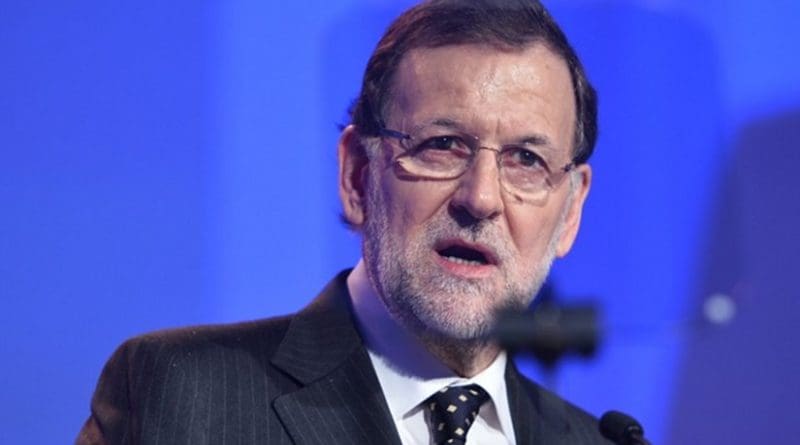Spain: Rajoy Announces Investment Of EUR4.2 Billion In Catalonia
At the opening ceremony in Barcelona of the conference entitled “Connected to the Future”, Spain’s Prime Minister Mariano Rajoy stressed that “the investment in infrastructure translates into jobs and opportunities for all”. Furthermore, he offered “sensible dialogue” for “connecting us together to a better shared future.”
In his speech, Rajoy gave an outline of the “fundamental lines” of the Central Government’s commitment to Catalonia – “an effort”, he explained, “that will amount to 4.2 billion euros of investment in infrastructures, transport and housing between now and 2020”.
Rajoy went on to say that, “now that the worst of the economic crisis is behind us”, the time has come “to add new momentum to our investment in necessary infrastructures” because “investment in infrastructure translates into jobs and opportunities for all”, as well as increased competitiveness for the country, increased regional structure and greater social cohesion.
After recalling that “Catalonia is the only autonomous region of Spain with AVE high-speed rail links between its four provincial capitals” and that “over 14 billion euros” have been invested to bring “high-speed railways” to the border with France, Rajoy stressed that one of the main priorities will now be the Rodalies – the railway service used by 400,000 Catalan citizens every day.
Rajoy said that “the new Rodalies plan provides for a total investment of almost 4 billion euros leading up to 2025”: 1.88 billion between 2017 and 2020, and the rest in the period 2021-2025.
Rajoy stressed that he is committed to “this plan being realistic, viable and verifiable at all stages” and to it being coordinated between all tiers of government. “We are aware of the need to make a special effort. It will be made and results will be achieved”, he said.
The Mediterranean Corridor, a key public works project
As regards the Mediterranean Corridor, Rajoy said that this is the “other main priority for this legislature” because “it is a key project that will modernize the country”.
Rajoy explained that “the Mediterranean Corridor is a multimodal road and railway infrastructure project that will connect the main logistics hubs, intermodal terminals and production centers around the Mediterranean”.
In this regard, Rajoy stressed that the Government of Spain expects that “the three Catalan sections of the Mediterranean Corridor could be ready by spring 2020”.
Catalan airports
Rajoy also mentioned the shuttle train that will link Barcelona-El Prat Airport with Sants railway station. The first stage of this project has already begun, with an initial investment of 285 million euros.
Rajoy said that, when this work is complete, “El Prat Airport will be one of the airports with the best links in Europe”.
However, the Central Government’s plan also includes investments in the airports of Catalonia – 200 million euros between 2017 and 2020 – to which can be added a further 40 million to be invested by ENAIRE in air navigation projects, given that 30% of all Spanish air traffic is managed in Catalonia.
Roads and ports
Rajoy said that Catalan roads will receive “an investment boost” of 850 million euros between now and the end of the legislature. He listed the roads that the Ministry of Public Works “will focus on”: the Ring-Road, the B-40, the N-340, the N-II and the N-240 between Lleida and Les Borges Blanques.
After underlining the “key role” played by the State Ports in “the logistics chain and foreign trade in Catalonia”, Rajoy highlighted that investment in this area will amount to 587 million euros during the current legislature.
The European Medicines Agency
Rajoy also stressed that the Government of Spain wishes to improve the country’s position “in Europe and around the world”. It is therefore “taking steps” for “Barcelona to house the new headquarters of the European Medicines Agency” which is currently in London.
He explained that Barcelona is a “great city” that “is fully capable of effectively housing the 800 highly specialised professionals who work at this organisation”.
Economic measures
Rajoy began his speech by saying that “we are now leaving behind us the most serious economic crisis of our time” thanks to the way things were handled and the “extremely extensive series” of reforms undertaken by the Government of Spain. This has allowed our economic sovereignty to be preserved, confidence to be generated and the public deficit to be reduced. Furthermore, the bankruptcy of various regional governments was avoided through the implementation of liquidity measures.

